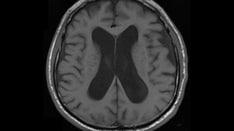The anti-inflammatory agent colchicine, started within 24 hours of acute ischemic stroke or a transient ischemic attack (TIA), was not associated with a reduction in subsequent strokes or other vascular events at 90 days in the CHANCE-3 trial.
The results were presented by Yongjun Wang, MD, Beijing Tiantan Hospital, Capital Medical University, China, at the recent World Stroke Congress (WSC) 2023 in Toronto, Ontario, Canada.
Wang noted that inflammation may be a key factor involved in the residual risk for recurrent stroke, with data from previous CHANCE trials suggesting a higher stroke recurrence rate in patients with higher levels of high-sensitivity C-reactive protein (hsCRP), a key marker of inflammation.
Low-dose colchicine, which acts as an anti-inflammatory agent, has recently been approved in many countries for patients with established atherosclerotic disease or multiple risk factors for cardiovascular disease to reduce the risk for future cardiovascular events. This follows benefits seen in those populations in the LoDoCo-2 and COLCOT trials.
The CHANCE-3 study was conducted to evaluate whether similar benefits could be found in patients with acute ischemic stroke.
The trial involved 8369 Chinese patients with minor to moderate ischemic stroke (National Institutes of Health Stroke Scale score ≤ 5) or high-risk TIA (ABCD2 score ≥ 4) who had an hsCRP level ≥ 2 mg/L.
Patients were assigned within 24 hours after symptom onset, in a 1:1 ratio, to receive colchicine (1 mg daily on days 1-3, followed by 0.5 mg daily for a total of 90 days) or placebo, on a background of optimal medical therapy.
The primary outcome was any stroke within 90 days. The key secondary outcomes included a composite of stroke, TIA, myocardial infarction, and vascular death within 90 days, and Modified Rankin Scale score > 1 at 90 days.
Results showed that the primary outcome of any stroke at 90 days occurred in 6.3% of the colchicine group vs 6.5% of the placebo group, a nonsignificant difference (P = .79).
All secondary outcomes were also neutral, with no differences between the two groups.
Addressing the different results in CHANCE-3 compared with those of the cardiovascular trials of colchicine, Wang pointed out that the cardiovascular trials had a much longer treatment and follow-up time (an average of 22 months) compared with just 3 months in CHANCE-3.
"Clinical trials with longer treatment times are needed to further assess the effects of colchicine after cerebrovascular events, but it may be that ischemic cerebrovascular disease and ischemic heart disease respond differently to colchicine treatment," he concluded.
Commenting on the study for theheart.org | Medscape Cardiology, co-chair of the WSC session at which it was presented, Ashkan Shoamanesh, MD, associate professor of medicine at McMaster University in Canada, said CHANCE-3 was a well-designed large phase 3 randomized trial and the first such trial to test colchicine for secondary stroke prevention.
He agreed with Wang that the follow-up duration for this initial analysis of 3-month outcomes may have been too short to see an effect.
"So, we require randomized trials with longer follow-up prior to abandoning this potential treatment," he added.
Shoamanesh noted that several additional trials are currently ongoing testing colchicine for secondary prevention in patients with stroke. These include the CONVINCE, CASPER, CoVasc-ICH, and RIISC-THETIS trials.
He also pointed out that in contrast to ischemic heart disease, which results from atherosclerosis, the mechanisms underlying ischemic stroke are more heterogeneous and include various vascular and cardioembolic pathologies.
The CHANCE-3 study was funded by grants from the National Natural Science Foundation of China, the Ministry of Science and Technology of China, the Chinese Academy of Medical Sciences, and the Beijing Municipal Health Commission.
15th World Stroke Congress (WSC) 2023. Presented October 11, 2023.
For more news, follow Medscape on Facebook, X (formerly known as Twitter), Instagram, and YouTube
Credits:
Lead image: Dreamstime
Medscape Medical News © 2023 WebMD, LLC
Send news tips to news@medscape.net.
Cite this: No Benefit of Colchicine After Stroke, TIA: CHANCE-3 - Medscape - Oct 26, 2023.











Comments